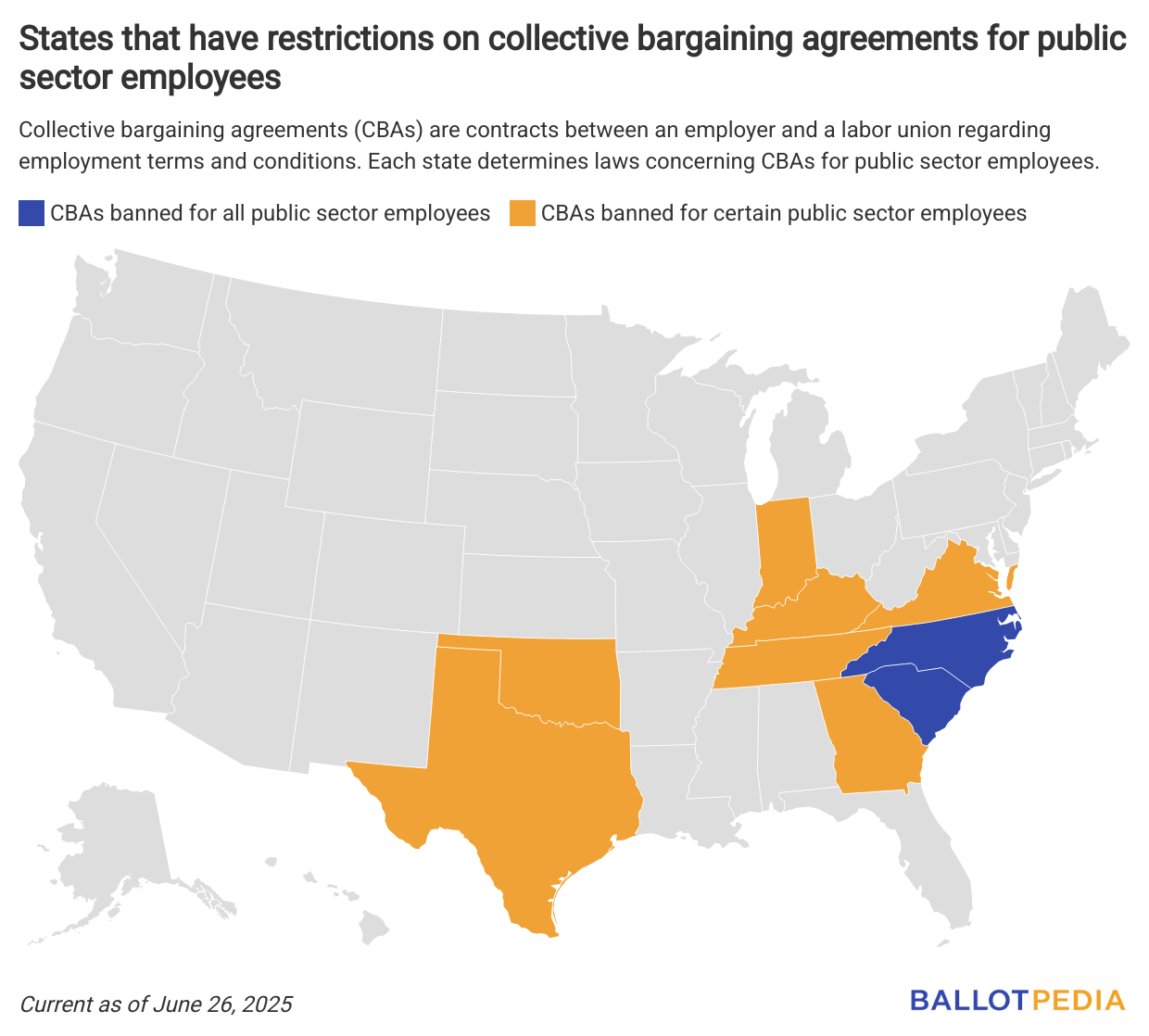|
|
Each week, The Weekly Brew brings you a collection of the most viewed stories from The Daily Brew, condensed. If you like this newsletter, sign up to The Daily Brew with one click to wake up and learn something new each day.
Note: The Weekly Brew will take a break next Friday for the 4th of July holiday. We’ll return to your inboxes on July 11.
Here are the top stories from the week of June 23 - June 27. |
|
|
|
|
Voters in one of the 31 states with mandatory judicial retirement ages—Louisiana—will decide whether to raise their age
|
|
|
|
|
|
|
On April 18, 2026, Louisiana voters will decide on an amendment to increase the judicial retirement age. Currently, the age is 70, and if a judge turns 70 during their term, they may finish the rest of their term before retiring. The amendment would raise the mandatory retirement age to 75.
Thirty-one states and the District of Columbia have mandatory retirement ages for judges. These laws require judges to retire either upon reaching a specified age or at the end of the term during which they reach that age. |
|
|
|
|
|
|
|
|
|
|
A look at work requirements for public assistance in the One Big Beautiful Bill Act
|
|
|
|
|
|
|
In Wednesday’s Brew, we looked at one aspect in the U.S. House of Representatives version of the One Big Beautiful Bill Act—work requirements for public assistance.
Work requirements for public assistance include job searching, engaging in job training, volunteering, or pursuing education.
The bill seeks to change two areas of public assistance: Medicaid and the Supplemental Nutrition Assistance Program (SNAP).
-
Medicaid is a program that provides medical insurance to groups of low-income people and individuals with disabilities.
-
SNAP is a program that provides food-purchasing assistance to groups of low-income people.
A key Medicaid provision is that certain individuals would need to demonstrate at least 80 hours per month of community engagement to qualify for the program.
A key SNAP provision is that the age range for work requirements would increase from 17-60 to 17-65. |
|
|
|
|
|
|
|
|
|
|
A look at the June 24 New York City election results
|
|
|
|
|
|
|
As part of our ongoing coverage of local elections in the nation’s largest cities, here’s a look at some of the results from New York City's June 24 Democratic mayoral primary.
This is the second time New York City has held a mayoral primary using ranked-choice voting (RCV) and the third time the city has held primaries using RCV. In 2019, voters approved a charter amendment establishing RCV for primary and special elections.
Mayor
Thirteen candidates ran in the Democratic mayoral primary. The Republican primary was canceled after only one candidate–Curtis Sliwa– filed to run. Incumbent Eric Adams (D) is running for re-election as an independent.
Before the tabulation of ranked votes began, Zohran Mamdani had 43.5% of the vote to Andrew Cuomo’s 36.4%. Cuomo conceded on election night.
City Council
In addition to the mayor, all 51 New York City Council seats are also up for election this year. There were 28 contested Democratic primaries and three contested Republican primaries.
As of June 25, 2025, ten races, including two featuring incumbents – both Democrats –are still uncalled. All other incumbents won their primaries. The two uncalled races featuring incumbents are in Districts 1 and 41. |
|
|
|
|
|
|
|
|
|
|
Utah voters to decide on the state's first veto referendum in 18 years
|
|
|
|
|
|
|
On Nov. 3, 2026, Utah voters will decide whether to uphold or repeal House Bill 267 (HB 267), the first time they will decide on a veto referendum in 18 years. A "yes" vote on the referendum will uphold HB 267, and a "no" vote would repeal it.
HB 267 would prohibit public sector unions from entering into collective bargaining agreements (CBAs)—contracts between an employer and a labor union regarding employment terms and conditions.
North Carolina and South Carolina have banned CBAs for all public sector employees., Seven other states have prohibited CBAs for certain types of public sector employees.
 |
|
|
|
|
|
|
|
|
|
|
|
Access to Ballotpedia is free 365 days per year... but Ballotpedia is not free to operate. Every dollar given to Ballotpedia helps ensure we continue to expand our coverage of all elections in the United States. Provide your support today and give the gift of unbiased political and policy information to all Ballotpedia readers. |
|
|
|
|
|
|
|
|
|